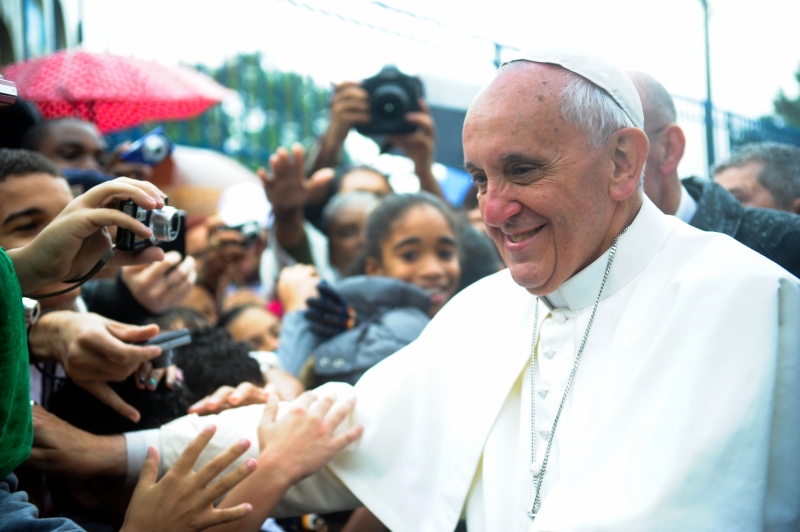Pope Francis at Varghina, Brazil
A Washington Post piece rejects the American image of Pope Francis as a leftist, exploring his views and ideas through the context of Juan Perón and Evita.
A former congressman who studied at the San Miguel Jesuit college with Francis says that the Pope is a “Peronist”.
From the article:
Gen. Juan Perón ruled Argentina from 1946 to 1955, and again briefly in the 1970s, and Peronism has endured as a dominant force in the country’s political life. It attempts to bridge class divides through the combination of a strong, authoritative leader, a highly centralized and generous social welfare state, and heavy doses of quasi-religious nationalist sentiment. Even after her death in 1952, Perón’s wife Evita was a figure of adoration among the country’s working poor.
His former mentor assures visitors to the Colegio Máximo that the Pope is not anti-capitalist.
From the article:
It was at the Colegio Máximo that he came under the influence of Juan Carlos Scannone and a group of other young priests who advocated a “theology of the people” (teologia del pueblo) as an alternative to Marxist-inspired liberation theology. It was the pastoral approach that Francis would adopt, emphasizing humility, simplicity and intimate contact with society’s poor and most vulnerable. A theology of the people meant living among the poor, not talking about them in the abstract.
Scannone today is 83 and still lives at the Colegio Máximo, where he attended Francis’s ordination. No, he assured a visitor, the pope is not an anti-capitalist.
What do you think of this more complex picture of the Pope? Do you have any thoughts on the differences between liberation theology and a “theology of the people”?

